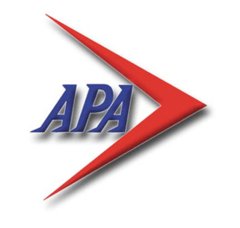Dépêches
Allied Pilots Association Urges Focus on Safety as FAA Considers Aviation Rulemaking Committee Inputs
Dépèche transmise le 29 septembre 2009 par Business Wire

Allied Pilots Association Urges Focus on Safety as FAA Considers Aviation Rulemaking Committee Inputs
FORT WORTH, Texas--(BUSINESS WIRE)--The Allied Pilots Association (APA), certified collective bargaining agent for the 11,500 pilots of American Airlines (NYSE: AMR), emphasized the importance of reducing pilot fatigue to enhance safety as the Federal Aviation Administration (FAA) reviews recommendations from an airline industry stakeholder group convened to review flight- and duty-time regulations.
“Pilot fatigue remains the one of the gravest threats to aviation safety, as we have unfortunately seen in recent tragedies such as the Colgan Air accident in Buffalo, New York this past February,” said APA President Captain Lloyd Hill. “Accordingly, we urge policymakers to keep the goal of reducing pilot fatigue foremost in mind as they consider the recommendations of the Aviation Rulemaking Committee.
“Any increase in the amount of time pilots are scheduled to be at the controls in a given duty day will only serve to exacerbate pilot fatigue,” Hill said.
The FAA convened an Aviation Rulemaking Committee (ARC) in July comprised of labor, industry and government representatives and tasked the participants with conducting a comprehensive review of current flight-time and duty-time regulations. An APA representative was among the ARC’s participants.
Hill cited the importance of “planning for the worst” as airline industry regulators assess the ARC’s recommendations.
“Sometimes what may sound like a reasonable plan within the confines of a conference room just isn’t suitable for the unforgiving world of commercial aviation, where split-second decisions can make the difference between life and death,” Hill said. “There’s no substitute for well-rested, properly trained pilots at the controls when something goes wrong, as the ‘miracle on the Hudson’ illustrated so dramatically. Conversely, when a crew that for whatever reason is not capable of peak performance finds itself in a challenging situation, common sense tells you that the risk of an adverse outcome increases considerably.”
Hill noted that the specific demands of the airline pilot profession contribute to fatigue. These demands include circadian rhythm disruption and back-side-of-the-clock operations; dealing with high-traffic environments, mountainous terrain and inclement weather; communicating with foreign air traffic controllers with limited English-speaking skills; and pressurized, recirculated cabin air. Other unique stresses that can exacerbate fatigue include pilots’ limited control over their schedules for meals, rest breaks, bathroom usage and other basic physiological functions. Also, he cautioned pilots who may view the prospect of fewer total workdays each month as an acceptable tradeoff for increased flight time per duty day.
“No rational individual would argue that permitting airlines to schedule pilots for more time at the controls will increase the margin of safety,” Hill said. “This review of longstanding safety-related regulations should not be about accommodating lifestyle preferences or airline management’s endless quest for greater employee productivity. The goal of any regulatory change in our industry should be to enhance safety.”
In its investigations of several fatal airline accidents in recent years, the National Transportation Safety Board (NTSB) has repeatedly warned of the dangers of pilot fatigue. Reducing accidents and incidents caused by pilot fatigue is one of the priorities on the NTSB’s “most wanted” list of transportation safety improvements.
Founded in 1963, the Allied Pilots Association—the largest independent pilot union in the U.S.—is headquartered in Fort Worth, Texas. APA represents the 11,500 pilots of American Airlines, including 1,892 pilots on furlough. The furloughs began shortly after the September 11, 2001 attacks. Also, several hundred American Airlines pilots are on full-time military leave of absence serving in the armed forces. The union’s Web site address is www.alliedpilots.org. American Airlines is the nation’s second-largest passenger carrier and fifth-largest cargo carrier.
- 04/06 Cathay Pacific relance sa liaison vers Adélaïde
- 04/06 Nesher Aviation commande des Tecnam P-Mentor
- 04/06 Airbus livre le premier A321XLR motorisé par Pratt & Whitney à Wizz Air
- 04/06 Finnair étoffe son programme hivernal
- 04/06 Le premier Bombardier Global 8000 de série effectue son vol inaugural
- 04/06 Le Groupe Qatar Airways annonce les meilleurs résultats financiers de son histoire
- 04/06 Corsair signe un partenariat avec Hertz
- 01/06Incident au sol d'un Spitfire à Biscarrosse
- 31/05Meeting Cerny-La Ferté-Alais 2025 : et si vous voliez en DC-3
- 31/05 Le deuxième prototype du Cessna Citation CJ4 Gen3 prend son envol avec succès
- 31/05 Textron Aviation annonce sa venue au salon du Bourget 2025
- 31/05 Qatar Airways a signé une commande record avec Boeing et GE Aerospace
- 31/05 ATR et Braathens prolongent leur collaboration pour soutenir l’essor du wet lease
- 31/05 Air Tahiti Nui : nouveau kit enfants
- 31/05 Emirates et AEGEAN renforcent leur partenariat avec un partage élargi de leurs programmes de fidélité
- 31/05 United dévoile sa nouvelle cabine Elevated
- 31/05 AviLease passe une première commande auprès de Boeing
- 26/05 Cathay réouvre son salon The Bridge à l'aéroport de Hong Kong
- 26/05 Volotea a célébré 75 millions de passagers
- 26/05 Transavia ouvre 10 nouvelles lignes vers le Maroc







